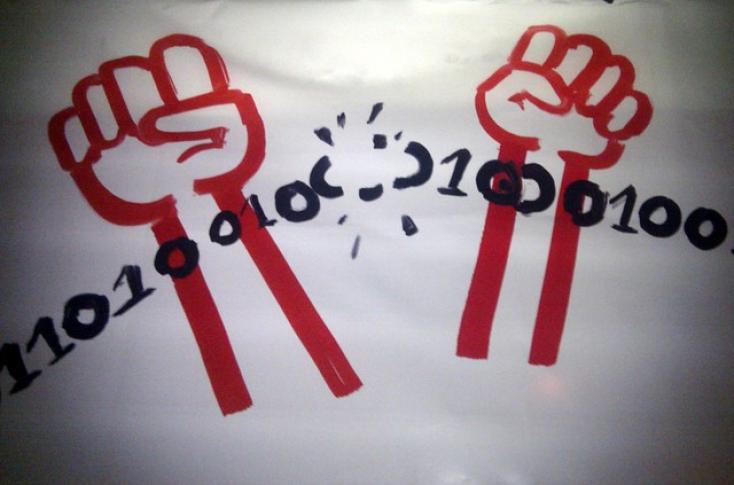
As an internet rights activist based in the global South, I often find myself musing over whether, within the African context in particular, access to a safe, free and open internet is possible.
I also wonder whether governance and democracy can ever intersect in the scheme of things. Policy making remains central in these reflections. Ultimately, policy should be transformative – meaning that it should be centred on rights, social justice and equality of citizens.
This is why for me, and hopefully for a number of other delegates, the highlight of the Stockholm Internet Forum (SIF) this year was the main plenary conversations exploring the status of democracy in a digital era. The two-day forum was held on 16-17 May under the theme “Shrinking democratic space online: Mobilising for a free, open and secure internet”.
It is undisputed that globally, the space that the internet occupies as an enabler of democracy is shrinking as state and private actors increase their dominance and control. In its 2018 report, Freedom House noted that 26 out of the 65 countries that it assessed indicated deterioration in internet freedom, in a wave of what the organisation termed digital authoritarianism.
Nothing demonstrates the diminishing digital space more than trends and developments in the world’s two superpowers: the United States of America and China. The dip in the internet freedom ranking of the United States is evidenced by the enactment of laws that undoubtedly have major implications on privacy, surveillance and data collection. Among these are the Clarifying Lawful Overseas Use of Data Act and the Foreign Intelligence Surveillance Act (FISA) Amendments Act. The policies related to the country’s Customs and Border Protection are also of concern.
Even more alarming is China’s growing global influence and status in spite of its damning record of censorship and surveillance within its own borders. In Africa, China continues to provide technical assistance and core telecommunications infrastructure. But it is the latest decision by the United Kingdom’s National Security Council to let Chinese telecommunications giant Huawei help build parts of its 5G infrastructure that should raise eyebrows.
A few days before the forum, two Bangladeshis had been arrested over their Facebook posts. Poet and journalist Henry Swapon was accused of violating the country’s Digital Security Act, while Supreme Court lawyer and writer Imtiaz Mahmud was arrested over a case of allegedly “hurting religious sentiments” and inciting violence filed way back in 2017 under the country's now-defunct Information and Communication Technology Act.
Also on the table that week was New Zealand Prime Minister Jacinda Ardern’s Christchurch Call and debates centred on the extent to which New Zealand was capable of delivering effective, proportional and accountable regulation of the internet. Participants at the forum pointed to a lack of a clear definition of terrorism, poor consultation and risks of impinging on freedom of speech.
Governance of the internet remains complex mainly because of its layered nature and connectedness to other sections of the telecommunication sector. It requires a look at policy and practice in its development, use and sustainability. Collaboration and trust among stakeholders is ideal for democratic internet governance.
Based on the conversations at the forum, both service providers and authorities continue to disregard citizens’ rights as they use the internet; and citizens trust them even when service providers continue to use people’s vital or personal data for profiteering while some governments use it to suppress any form of dissent.
From a corporate point of view, the Ranking Digital Rights 2018 Corporate Accountability Index noted a lack of transparency in the handling of personal data and poor governance mechanisms over human rights issues by Africa’s largest telecommunications operator, MTN.
African systems of governance remain a hindrance to the formulation of transformative policy, as governments and their affiliate institutions remain dominant and intransigent. This has been and continues to be an obstruction to the full and equal participation of stakeholders in good and people-centred governance.
The nature and composition of African states, and the power dynamics across the region, reflect varying levels of political will in the adoption of progressive resolutions of the African Internet Governance Forum (IGF) and advancement of the principles of the African Union Declaration on Internet Governance. The Declaration on Internet Governance recalls the commitment of African Union member states to uphold human and peoples’ rights enunciated in instruments of the African Union and of the United Nations, recognising that rights are rights and must be upheld and protected even online.
As the main stakeholder, governments are measured against their political will to allow information and communication technologies to enhance full development of their states while ensuring that their citizens also reach their full potential. African heads of states and governments have a chance to change their system of governance at national level in order to contribute meaningfully to multistakeholder processes. IGF multistakeholder processes could ideally be a platform for negotiation and mutual benefit in increasing the utilitarian value of the internet, and also in creating a more democratic governance system for the continent.
Image: Digital Chains: Struggling for internet freedoms, by stanjourdan, used under CC BY-SA 2.0 licence (https://flic.kr/p/eSEgCB)